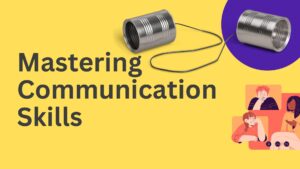Guide To Emotions
Understanding, Managing, and Mastering Emotional Intelligence
Emotions are a core part of the human experience. They influence how we think, behave, make decisions, and interact with others. In today’s fast-paced world, learning how to understand emotions, manage emotional responses, and develop emotional intelligence is more important than ever. This guide to emotions is designed to help you identify your feelings, regulate emotional reactions, and improve your mental well-being.
Whether you’re dealing with stress, navigating relationships, or seeking personal growth, this comprehensive emotional guide will provide the tools and insights you need.
What Are Emotions?
Emotions are psychological states that arise in response to internal thoughts or external events. They are typically short-lived but powerful and influence how we respond to situations. Emotions involve three components:
- Subjective experience (how you feel inside)
- Physiological response (body reactions like a racing heart or tears)
- Behavioral response (how you react externally, like yelling or smiling)
Types of Emotions
Understanding the different types of emotions is the first step in emotional awareness. Psychologists often categorize emotions into:
- Primary Emotions
These are basic and universal emotions experienced by everyone:
- Happiness
- Sadness
- Fear
- Anger
- Disgust
- Surprise
- Secondary Emotions
These are more complex and are influenced by individual experiences, culture, and context:
- Guilt
- Shame
- Pride
- Jealousy
- Embarrassment
- Compassion
Recognizing these emotions allows for better self-awareness and emotional regulation.
Importance of Understanding Emotions
The benefits of emotional understanding are vast. Here’s why it’s important to know your emotions:
- Improved mental health
- Better relationships
- Stronger communication skills
- Reduced anxiety and stress
- Higher emotional intelligence (EQ)
- Increased self-control and empathy
By following this guide to emotions, you can improve your emotional well-being and gain control over your responses.
How to Identify Your Emotions
Many people struggle to articulate how they feel. Here are practical steps to identify your emotions clearly:
- Pause and Reflect – Before reacting, take a moment to check in with yourself.
- Name the Feeling – Use specific emotion words like “frustrated,” “anxious,” or “hopeful.”
- Track Physical Responses – Are you clenching your fists? Breathing heavily? These are emotional cues.
- Journaling Emotions – Writing about your day helps you understand recurring emotional patterns.
Managing Emotions Effectively
Emotional management is not about suppressing emotions but handling them constructively. Here are key techniques:
- Deep Breathing and Mindfulness
Helps in calming down during intense emotional situations.
- Cognitive Reframing
Change how you interpret a situation to reduce emotional intensity.
- Problem-Solving
When emotions signal a problem, address the root cause instead of ignoring it.
- Healthy Expression
Talk to someone, write it out, or express emotions creatively through art, music, or movement.
Emotional Intelligence: The Power Skill of the Future
Emotional intelligence (EQ) is the ability to recognize, understand, and manage your own emotions while also being aware of others’ emotions. EQ is considered more important than IQ in many professional and personal success areas.
Components of Emotional Intelligence:
- Self-awareness
- Self-regulation
- Motivation
- Empathy
- Social skills
Learning how to boost your emotional intelligence is one of the most powerful steps in mastering your emotions.
Emotions and Mental Health
Unmanaged emotions can lead to mental health issues such as depression, anxiety, and chronic stress. On the other hand, emotional balance supports resilience, optimism, and psychological strength.
If you consistently feel overwhelmed by your emotions, it may be beneficial to speak with a therapist or counselor.
Final Thoughts: Embrace the Power of Emotions
Emotions are not your enemies—they are signals that help you navigate life. This guide to emotions empowers you to better understand yourself and others, leading to healthier relationships, improved decision-making, and a more fulfilling life.
Whether you’re feeling joyful or overwhelmed, learning to master your emotions is a lifelong journey that leads to clarity, growth, and inner peace.






































































1 comment